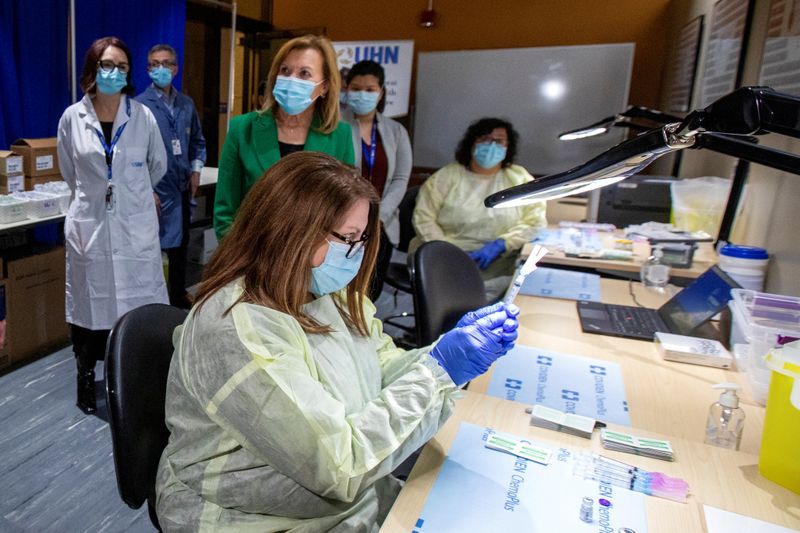By Allison Lampert
MONTREAL (Reuters) - Canada's Quebec province will impose a curfew starting on Saturday and extend an existing lockdown through Feb. 8, to curb the spread of the coronavirus, as it works to speed up a vaccination campaign to counter soaring cases of COVID-19.
The new curfew will run from 8 pm to 5 am, even as non-essential businesses remain shut and home gatherings are prohibited as part of a "shock treatment" to save lives and the province's health network, Premier François Legault said on Wednesday. Schools will remain open, he said.
Quebec is wrestling with more than 2,500 COVID-19 cases a day, a surge that threatens to increase hospitalizations beyond their spring peak in the next few weeks.
The new restrictions come as Canada faces a widespread second wave of the virus and concerns over the pace of vaccination efforts to protect citizens from the illness and combat its spread. Prime Minister Justin Trudeau on Tuesday promised that Ottawa would help speed the pace of inoculations.
Quebec decided at the end of December to administer all doses of the Pfizer Inc (NYSE:PFE) vaccine it had on hand instead of setting aside half of the supply for required second shots.
That triggered pushback from some residents of a Montreal long-term care home who received some of the first COVID-19 shots administered in the country. Second doses are supposed to be administered three weeks after the first, based on how the Pfizer vaccine developed with German partner BioNTech was tested in clinical trials, where it demonstrated 95% effectiveness at preventing illness.
Residents of the Maimonides Geriatric Center have threatened to seek a court injunction if they do not get the second recommended shot in the coming days. Representatives for Quebec’s Health Minister and a local health network that manages the facility declined comment.
The Western province of British Columbia has also said it would administer all doses available and delay the second shot. Facing a more contagious variant, Britain is doing the same.
The companies and some health experts have said current data does not support such an approach.
Like Quebec, Ontario Premier Doug Ford said on Wednesday the province was administering the vaccines as fast as it was getting them. "There are no vaccines sitting in any freezers," he said.
